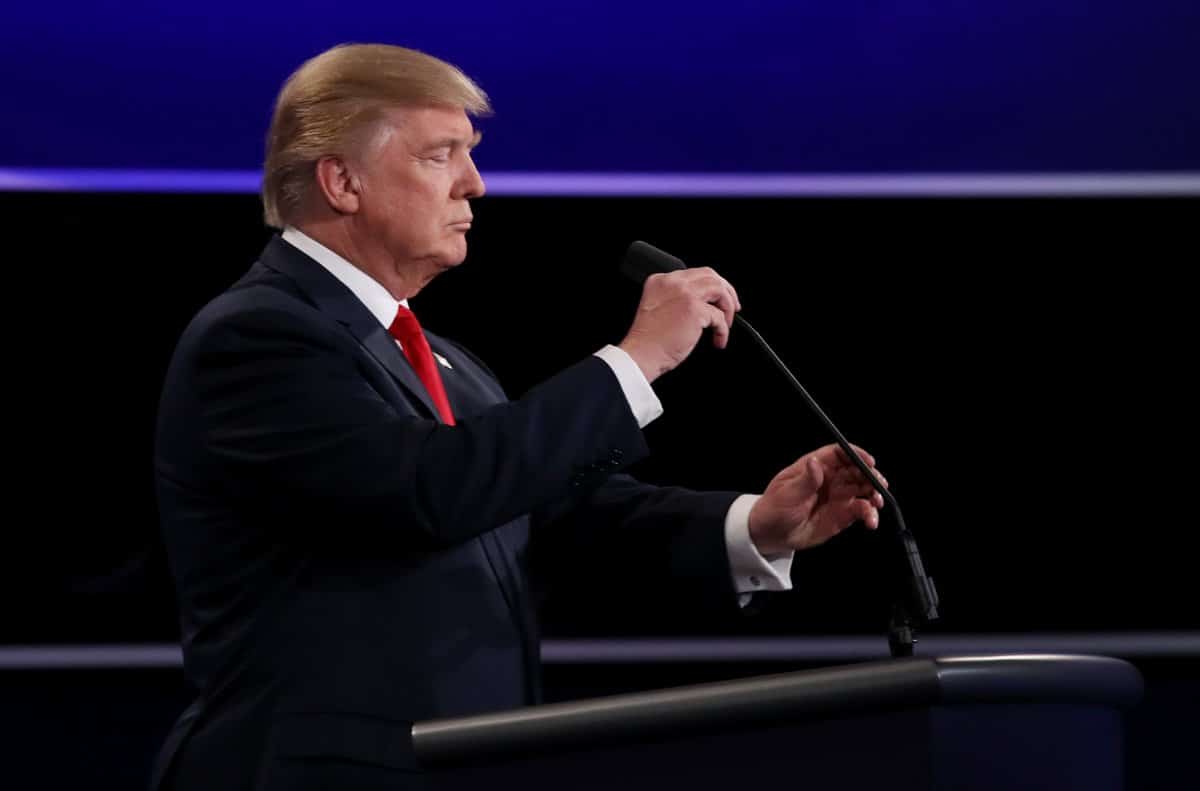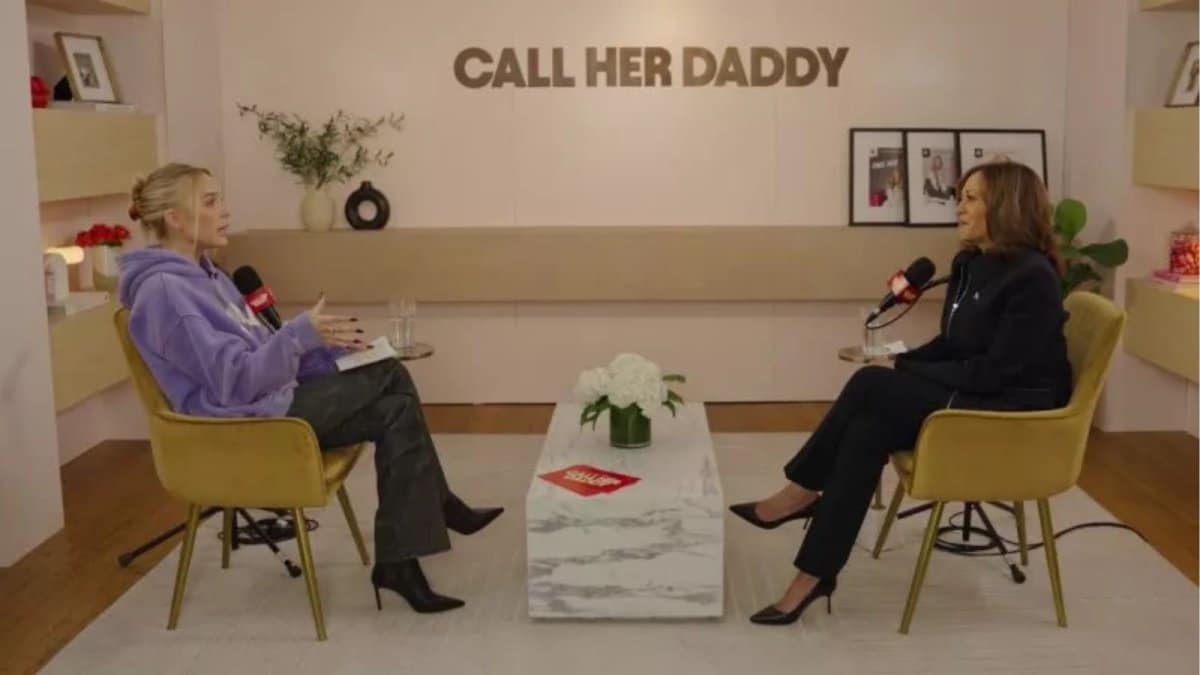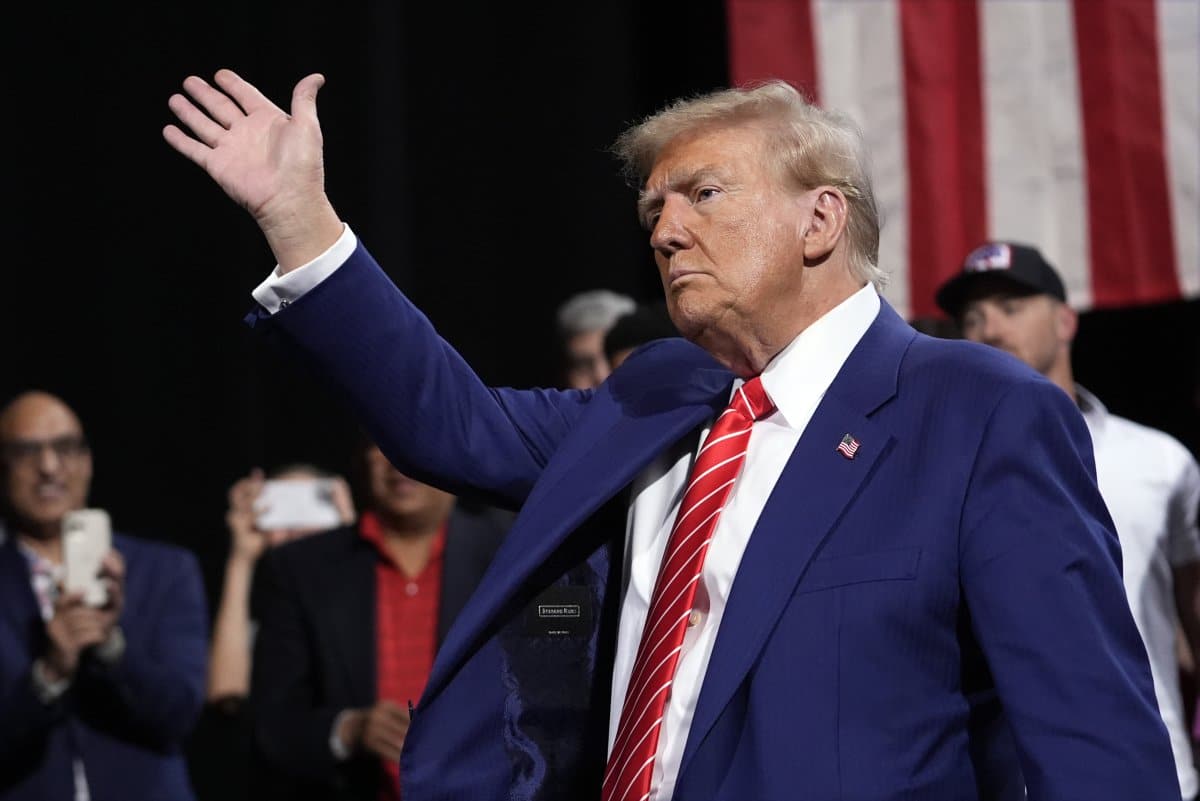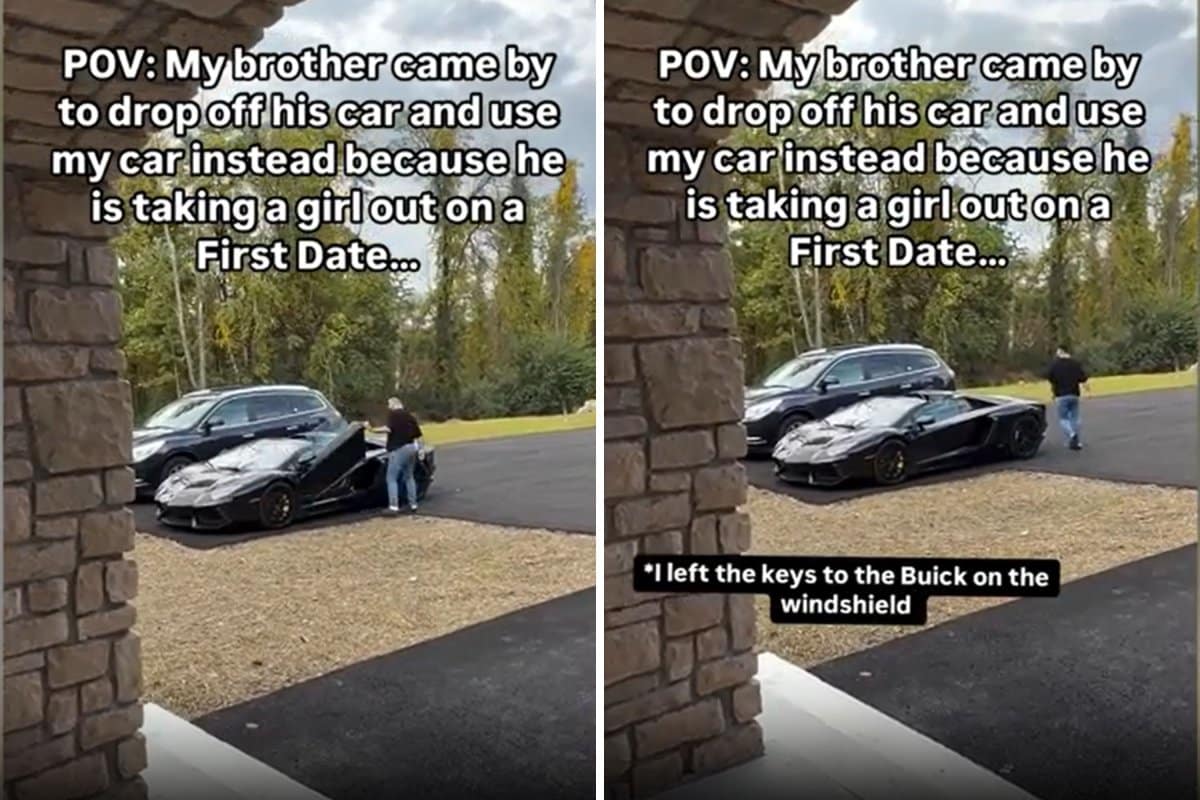The 2024 election has seen both former President Donald Trump and Vice President Kamala Harris embrace non-traditional means of reaching new audiences, with podcasts emerging as a one of the top formats.
The U.S. podcast audience is larger than ever before. Around 135 million Americans listen to podcasts at least once a month, with 15 million new listeners starting in the last year alone. The longform format gives politicians the chance to speak about their platform without interruption, and critically, it helps them connect with audiences that are otherwise disengaged from politics.
Amid rumors that both campaigns have approached Joe Rogan, one of the biggest names in podcasting, there is a shrinking amount of time for which each candidate can present a different side of themselves to voters.

Donald Trump adjusts the microphone during the third U.S. presidential debate at the Thomas & Mack Center on October 19, 2016 in Las Vegas. The former president has appeared on several podcasts over the election campaign.
Getty Images
Andrew Chadwick, professor of political communication at the University of Loughborough and director of the Online Civic Culture Centre, told Newsweek that it was this connection that makes podcasts so appealing for the presidential candidates.
“I think the main driver of the shift is old-school voter targeting updated for today, where every little helps in a fragmented media environment during the closing stages of the race,” Chadwick said.
“Rogan’s podcast audiences skew young and male. Both campaigns will struggle with turnout when it comes to younger demographics, though arguably Harris’ campaign has more to gain here and is keen to mobilize more men in particular to vote Democrat on Election Day.”
Trump appears to have been leaning hard into this demographic, with appearances on Lex Freidman’s podcast, as well as the Shawn Ryan Show. Combined, these appearances received more than 8 million views on YouTube, where the podcast is broadcast.
According to audience tracking site SimilarWeb, Friedman’s audience is 80 percent male, with the majority of his audience being aged 25-34.
Harris has also used appearances on podcasts such as Call Her Daddy to focus on her voter base; Call Her Daddy is the most popular podcast on Spotify for women. However, this interview has only received half a million views on YouTube.
Which Podcasts Has Donald Trump Appeared On?
- The Lex Freidman Podcast (5 million views)
- The Shawn Ryan Show (3.5 million views)
- This Past Weekend with Theo Von (13 million views)
- Full Send Podcast (900,000 views)
- Flagrant (4 million views)
- Bussin’ With The Boys (not yet published)
Which Podcasts Has Kamala Harris Appeared On?
- Call Her Daddy (500,000 views)
- All The Smoke (500,000 views)
These views, collected from YouTube, show that Trump has managed a far greater reach than Harris, with over 25 million views on YouTube alone. Each of these podcasts will also have additional views on other platforms, including Spotify, which doesn’t publish listener data.
However, appearing on podcasts and collaborating with younger influencers is not always a benefit for candidates. Trump’s appearance with Adin Ross was criticized online after it emerged that Trump had taken advice from his son Barron on the collaboration.
Meanwhile, 51 percent of voters in a Harvard CAPS/Harris poll thought that Harris’ appearance on Call Her Daddy, along with her other media appearances, helped rather than hurt the Democratic nominee. The same percentage said the media blitz had raised questions about her readiness for the presidency.
Another poll conducted amid the Joe Rogan appearance rumors found that 57 percent of respondents thought Harris going on the podcast would make no difference to their opinion of the vice president.

“Call Me Daddy” podcast host Alex Cooper sat down for a highly anticipated interview with Vice President Kamala Harris. The appearance marked the beginning of a media blitz for Harris.
Spotify/Call Me Daddy
Chadwick outlined disadvantages like these as relatively minor in the face of the popular appeal podcasters can bring to a campaign, though he also theorized that most voters’ minds were already made up at this point in the race.
“For the disadvantages, there is the potential for a podcast interview to go off the rails because they tend to be more conversational and less controlled,” he said.
“Still, we’re at the stage now where, unless something unusually decisive happens in the next couple of weeks, mainstream media reporting on the campaign is fairly settled in its framing and its audiences.
“In an extremely tight and polarized race, with the numbers of undecided voters starting to shrink, the campaign teams probably feel like the risks could be well worth it if it helps them get around familiar narratives of mainstream reporting. Podcasts might reach audiences that have tuned out of the mainstream coverage of the campaign.”
Newsweek contacted the Trump and Harris campaign for comment on this story via email.
Do you have a story we should be covering? Do you have any questions about this article? Contact LiveNews@newsweek.com.









